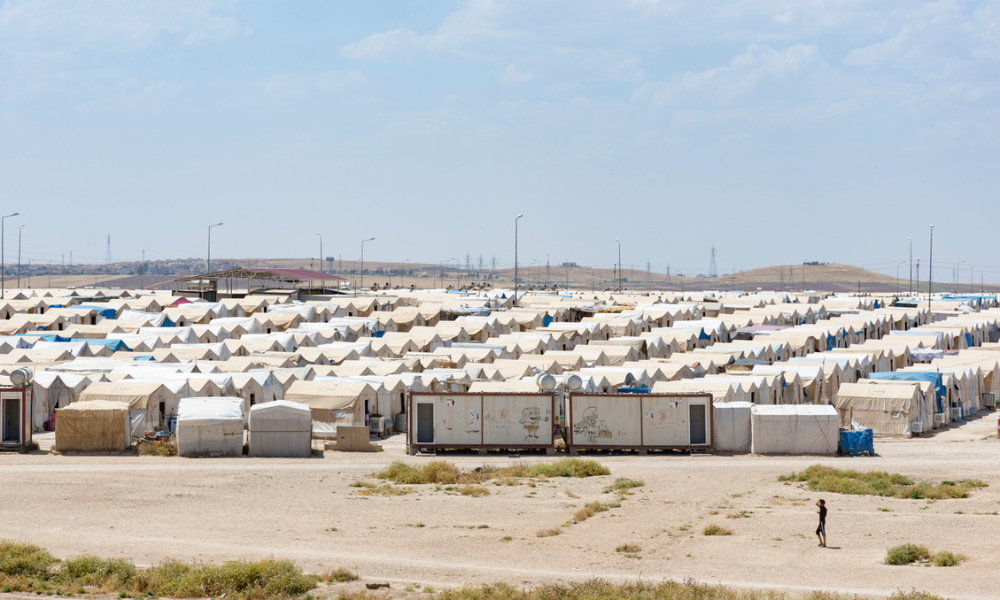International Bar Association Human Rights Institute urges amending criminal law to tackle genocide

The International Bar Association’s Human Rights Institute (IBAHRI) has raised concerns about the international community’s potential abandonment of the Yazidi people in Iraq, particularly considering the 10th anniversary of the Yazidi genocide last Aug. 3.
Though a decade has passed since the atrocities committed by Daesh, the Yazidi community continues to suffer, with many members still enduring enslavement and persecution, said a news release from the IBAHRI.
Withdrawing international support at this stage could potentially expose the Yazidis to renewed harm and lead to a repetition of the horrific crimes committed against them, including mass killings, rape, abductions, and enforced disappearances, the IBAHRI warned.
Latest News
Over 2,600 Yazidi women and children remain enslaved, with limited efforts made to rescue them despite their known locations, the IBAHRI reported. The IBAHRI described the plight of the Yazidis as an ongoing genocide.
Anne Ramberg, co-chair of the IBAHRI and immediate past secretary general of the Swedish Bar Association, said in the news release that “many remain living in camps with limited resources and opportunities.”
The IBAHRI was concerned about the planned closure of these camps for internally displaced people (IDP), including many Yazidis, by this December. Iraq’s federal government has announced these upcoming closures.
Residents face pressure to return to Sinjar, the region where the initial attacks occurred. The IBAHRI highlighted that this move lacked assurances of comprehensive assistance, security, or guarantees that the crimes committed against them would not be repeated.
“On the 10th anniversary of the Sinjar attack, the lack of action to ensure justice and accountability remains concerning,” said Mark Stephens, co-chair of the IBAHRI, in the news release. “With the imminent closure of the IDP camps, Yazidis face insecurity in returning and resettling in Sinjar, and the community continues to suffer from the intergenerational effects of the genocide.”
The IBAHRI’s concerns
A significant concern for the IBAHRI is the impending closure of several key initiatives aimed at holding Daesh accountable for its crimes.
This September, the Investigative Team to Promote Accountability for Crimes Committed by Da'esh/ISIL (UNITAD) is scheduled to close, which leaves uncertainty about the future use of the evidence collected. The UNITAD has played a critical role in gathering evidence, including the exhumation of mass graves, but there is no clarity on whether its work will be continued or by whom.
The IBAHRI also noted that the UN Assistance Mission for Iraq (UNAMI) is set to close in 2025 at the request of Iraqi authorities. The UNAMI has promoted accountability for human rights violations and has supported the protection of human rights in Iraq.
The IBAHRI challenged the assumption that the situation has improved to the point where external assistance is no longer needed.
In July 2024, the IBAHRI joined forces with three Yazidi-led organizations – the Free Yezidi Foundation, Yazda, and the Sinjar Academy – and with the Coalition for Genocide Response to submit concerns and recommendations to the UN Human Rights Council’s universal periodic review for Iraq.
These recommendations included a call for Iraq to halt terror-related trials failing to adhere to due process, to amend its criminal law to address genocide and other international crimes, and to ensure the investigation and appropriate prosecution of the atrocities against the Yazidis. The recommendations also covered the need for legal protections and assistance for victims and survivors and the establishment of a specialized ad hoc tribunal to prosecute Daesh crimes.
“When the Yazidis are denied their voice at the national level, the international community must do all we can to hear and amplify them,” said Ramberg in the news release.






